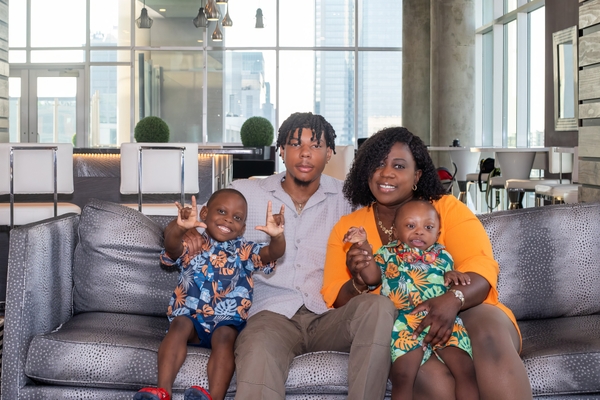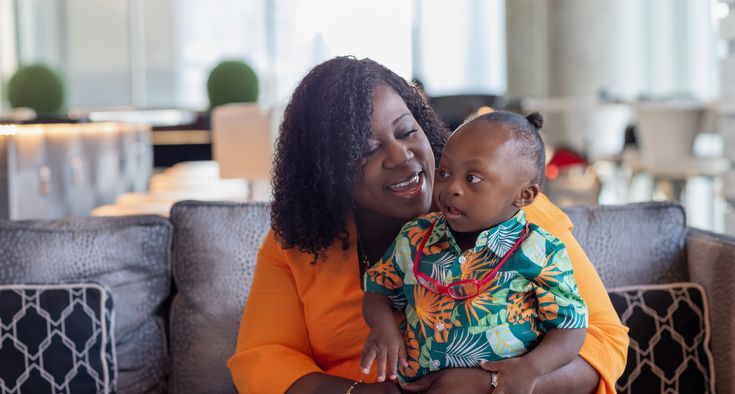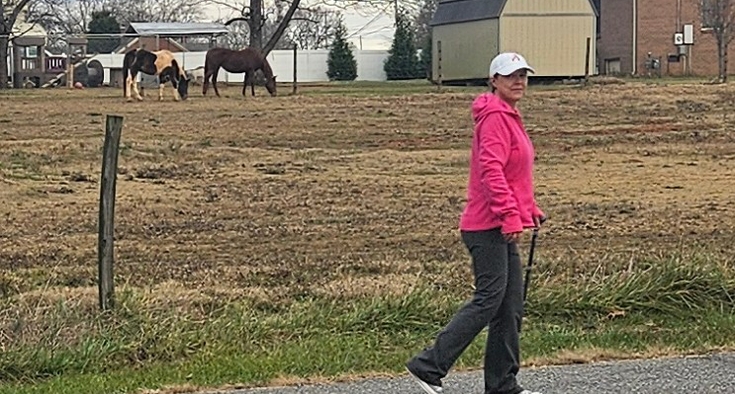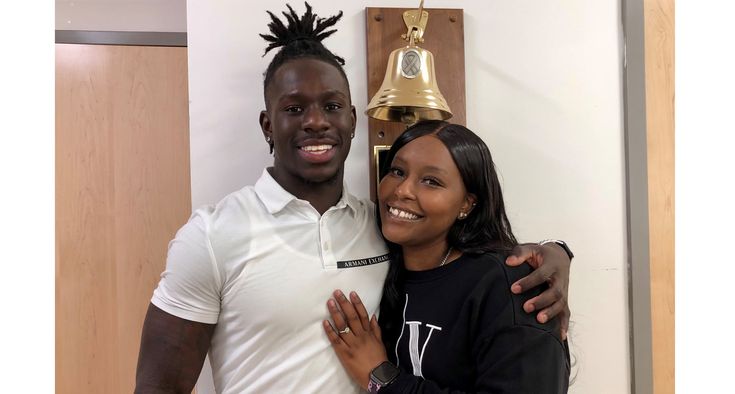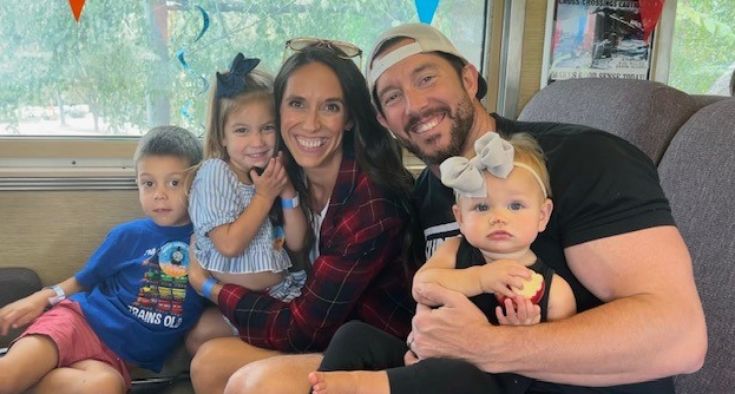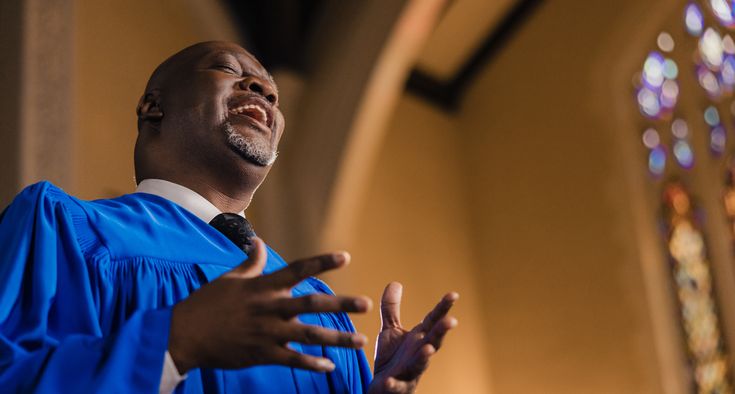At 40, Natasha Sabbah didn’t think she could have any more children. But then she learned something surprising: a baby was on his way.
Being pregnant at age 40, Sabbah knew there could be challenges. Among them was an increased risk of health conditions for her and the baby.
Shortly before giving birth, Sabbah learned that there was a possibility that her baby may have Down syndrome. That diagnosis was confirmed when her son was born at Novant Health Hemby Children's Hospital in December 2021.
What Sabbah remembers from his birth is that “He had all his fingers, his eyes were bright when he looked at me, and he smiled at me. It was beautiful.”
She named him Kamisoko, a Nigerian name that means “praise.”
“I'm big on names and meanings, and I just really want the name to represent who they are and what's behind them,” Sabbah said. “We didn’t think we could get pregnant naturally, and yet here comes Kamisoko. That was my praise. Praising God for when it was bad, and when it was good – a bunch of praise.”
She didn’t yet know how significant that name choice would turn out to be.
World-class cancer care is available closer to home.
‘What is wrong with my baby?’
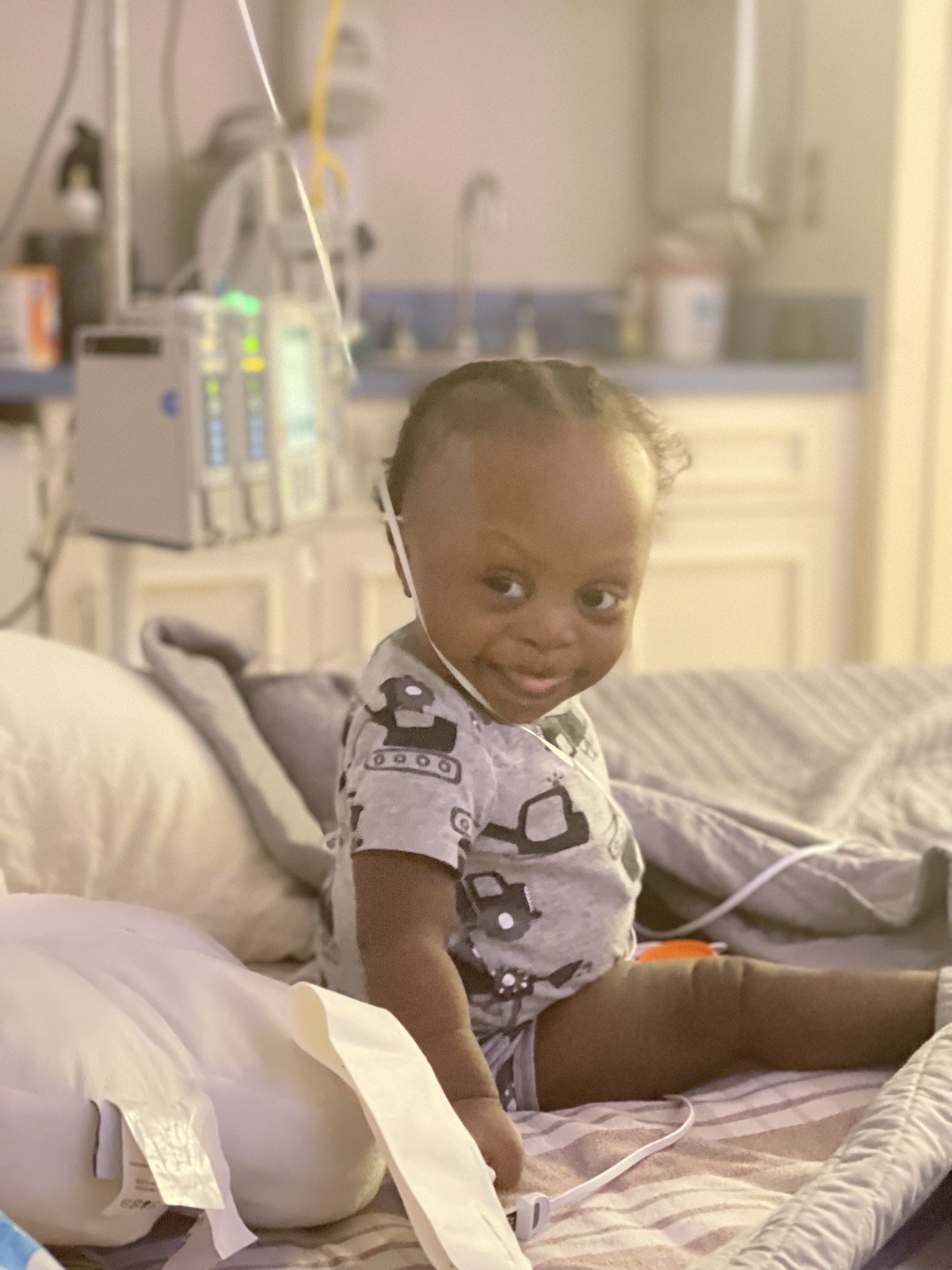
In October 2022, 6-month-old Kamisoko (affectionately called “Kami”) started having cold-like symptoms. At first, Sabbah treated him at home by using a humidifier and giving him extra cuddles.
“But one night, he got really, really sick,” Sabbah said. “I was like, ‘What is wrong with my baby?’”
At a nearby emergency room not affiliated with Novant Health, a doctor ran tests, then sent the pair home as he waited for results. But Sabbah knew something was wrong.
“I could tell there was something he wasn’t telling me,” Sabbah said. “When I got home, he called me every 30 minutes. ‘How is he doing? Is he OK?’”
Then, the doctor called a final time.
“He said, ‘I need you to come back, but don’t come back [here]. I need you to go over to Hemby Children’s Hospital, and Dr. Bell is waiting for you,’” Sabbah said.
Sabbah didn’t know who Bell was — and wasn’t eager to go back to a hospital after their late night. But the doctor insisted it was important, so Sabbah took Kami in.
‘My stomach just fell’

Dr. Jessica Bell is a pediatric oncologist and lead physician at the St. Jude Affiliate Clinic at Novant Health Hemby Children’s Hospital. When she meets parents for the first time, it’s because their child’s blood work, imaging or symptoms need further evaluation for a possible blood disorder or sometimes cancer.
In these difficult conversations, Bell respects parents by being honest about what she knows, and what they still need to find out.
Bell told Sabbah that she suspected Kami had a blood cancer.
“Instantly, my stomach drew up like it was in a vacuum suction bag or something, because I know what that is,” Sabbah said. “My younger sister passed away in September 1999 from leukemia. She and I are a year apart, so here I am going through the same thing that my mama went through.”
Sabbah’s reaction was typical, Bell said, adding that parents are “basically in pain from the moment you tell them their child has cancer – it’s like I’m hitting them over the head with a 4x4. It's almost physically traumatic to them.” Some parents get angry. Some even throw up. Bell stays steady, comforting them, then telling them what comes next.
Although they still needed a pathology report and a diagnostic test to confirm his diagnosis, Bell told Sabbah that Kami needed to be admitted to the hospital. A room was being prepared for him as they spoke.
“Everything started going so fast,” Sabbah said. “I didn't get a chance to breathe. You're just stuck, watching things happen, and you don't get a chance to respond emotionally — one of those things where you push to go through it.”
‘I remembered my baby’s name’
In the hospital room, as nurses began prepping her 6-month-old baby for the possibility of chemotherapy, Sabbah had a realization.
“I remembered my baby's name, which is ‘Praise,’” Sabbah said. “All I could do is just praise God for the outcome. In my mind, if God brought this baby here, he's already healed.” Kami was officially diagnosed with acute myeloid leukemia the next day.
Two days after Sabbah had taken her baby to the emergency room, a team of pediatric oncologists started chemotherapy.
“You’re not going home. There's no time to prepare,” Sabbah said. “I trusted them, and I trusted God, and that's where I left it. I had no time to challenge their education, their gifts, what they do, the process, the technology. I really had to dig deep and trust the process.”
‘Our life changed’
An estimated 70 infants each year are diagnosed with acute myeloid leukemia in the United States. These patients usually respond best to intensive courses of chemotherapy, delivered for three to five weeks per cycle, over multiple cycles.
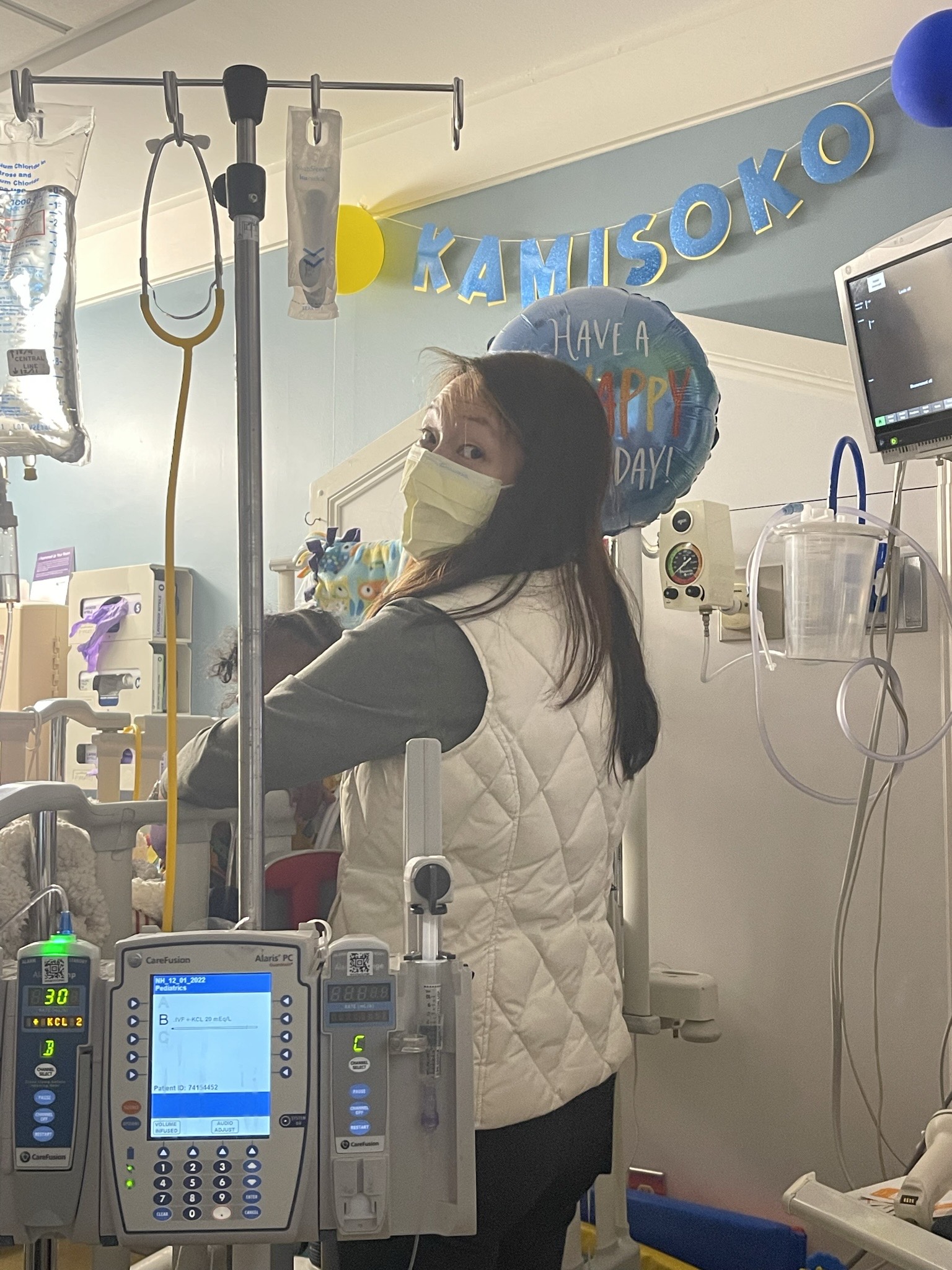
To make it more comfortable for Kami to get the chemotherapy medication and give blood samples, a central line — a long tube inserted through the chest and going to the bigger blood vessels there — was put in his body. It would stay in place for the next year.
Because chemotherapy would suppress Kami’s immune system and he would require frequent blood and platelet transfusions, he would need to stay in the hospital for each chemotherapy cycle. In between cycles, he would go home for a week or two before returning to the hospital. In total, the family was looking at up to 33 weeks of treatment — if things went well.
This was tough news to take in. In addition to Kami, Sabbah had a high school senior and a preschooler with sickle cell anemia at home. Her husband was serving in the U.S. Army Reserve, and she worked full time in a civilian role for the Army.
Still, Sabbah said, there was no way out but through.
“Your whole life changes,” Sabbah said.
The new normal

During each treatment cycle, Sabbah moved in with Kami. To make the room cozier, she brought in a king-sized blow-up mattress and covered it with a comforter and pillows, giving her and Kami a soft place to cuddle and play. She also brought in some of Kami’s favorite toys, his blanket and a music box.
She took a leave of absence from work initially and then got cleared to work remotely. While her husband cared for their other two sons at home, Sabbah started her days reading scripture in the hospital at 5 a.m. before working, caring for Kami and talking with his doctors. In the evenings, Kami’s brothers would come for dinner, and Sabbah would watch her preschooler’s dance moves and help her oldest son with college applications.
“I remember being so impressed by the juggling that moms do,” Bell said of Sabbah and her family. “It was so obvious how much they loved and truly cherished Kami. And we have the same mission: to love and care for Kami.”
As the months went by, the hospital became a second home. A nonprofit organization called Claire’s Army decorated their room for Christmas, and Kami’s care team celebrated his first birthday with the family.
Letting a kid be a kid
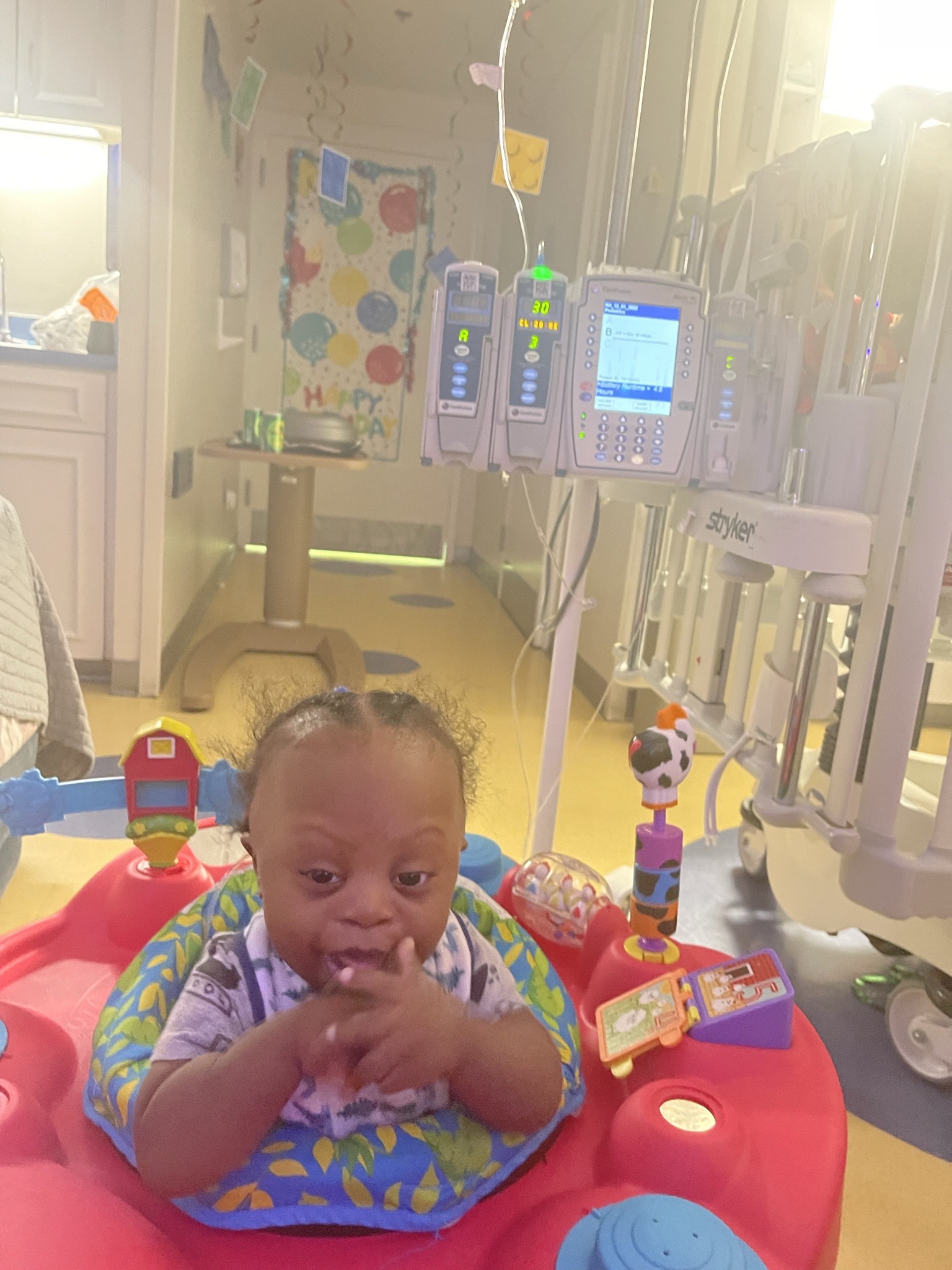
“Being in the hospital for long periods of time can definitely have an impact on a child's development,” child life specialist Kristen Beaury said. “They’re having painful procedures, they don't feel good, and they’re not getting a chance to get stimulated in the way they would in the outside world.”
The team uses play to explain medical procedures, de-sensitize children to medical tools that might scare them, and work on developmental skills.
“We know how important play is for a child. It’s a normal part of their day,” Beaury said. “Even though they're going through something hard, they're still getting to use those skills.”
Their work was particularly important with Kami, who is at high risk of developmental delays due to Down syndrome. He was so immunocompromised he could not leave his hospital room, so the team brought in new toys, played games with him, and created different environments in his room — rotating in items like a play mat, activity gym and highchair — to keep stimulating his development.
They let Kami play with special stethoscopes and a vitals machine, so he wasn’t scared by them. When nurses changed the dressing around his central line, the team would distract him with light-up toys, music or peekaboo. They also engaged Kami’s brothers, explaining Kami’s treatment and assuring them that Kami was being taken care of.
Sabbah said Kami’s eyes would light up whenever the child life specialists entered the room.
“He was so sweet, go-with-the-flow, happy, easy to engage with, and always playful, even in the hardest moments,” Beaury said.
And those hard moments came. Although Kami’s demeanor was usually cheerful, Sabbah said she had many “human moments” where she felt overwhelmed or scared.
In those moments, Bell, pediatric oncologists and hematologists, Kami’s nurses, and the child life specialists were there to help. “The whole team was just a blessing to get Kamisoko through this,” Sabbah said.
Kami today: cancer-free and thriving
And they did get him through it. Today, Kami is in remission, meeting developmental milestones and happy, Sabbah said.
He was monitored monthly after ending his treatment in March 2023, and has now “graduated” to visiting the team every few months. They will monitor him for the next 10 years — but for now, things are looking good.
Sabbah said this experience has given her family a greater appreciation for little moments, like Kami’s laughter and family dinners with all three boys around the table.
“We know life is short and it can be taken away from us quick in the blink of an eye,” she said. “Every day that we wake up is a gift.”
